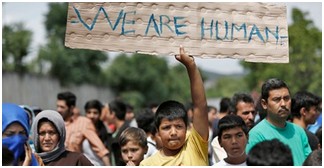WHO urges action on Europe’s biggest killers to reduce early deaths by a third
Извор: Светска здравствена организација – 16.04.2018
Press release
Sitges, Spain, 16 April 2018
How can health systems in the WHO European Region save more people from noncommunicable diseases (NCDs) such as heart disease, cancer and diabetes, and help meet the global goal to reduce premature deaths from NCDs by 33% by 2030? Ministers of health and senior policy-makers are gathering in Sitges, on 16–18 April 2018, to address this question at the High-Level Regional Meeting: Health Systems Respond to NCDs. The stakes are high across the 53 Member States of the European Region, where the major NCDs account for almost 9 deaths in 10 and have a negative economic impact. It has been estimated that for every 10% increase in NCD mortality, economic growth is reduced by 0.5%.
“European countries have led the way globally in protecting people from diabetes, cardiovascular diseases, cancer and chronic respiratory diseases. However, more must be done to curb the death and disability toll from noncommunicable diseases,” said Dr Zsuzsanna Jakab, WHO Regional Director for Europe. “With our knowledge of what works, we cannot simply stand by while people die prematurely of preventable diseases. At least 80% of people affected by heart disease, stroke and diabetes, and 40% of those suffering from cancer, would have remained healthy if the major risk factors, such as alcohol, tobacco, unhealthy diets and physical inactivity, were tackled. And these large improvements can be achieved at a reasonable cost through a comprehensive health systems response.”
Integration of health services and financing key
A number of factors are critical to enable health systems to effectively tackle NCDs, and a comprehensive health systems response aligns all these elements to work harmoniously.
While putting people at the centre, investments should be made in public health services and primary care, for example strengthening prevention and health promotion, integrating health services such as mental health, counselling, midwifery and physiotherapy, and making them available close to people’s homes.
Successful experiences in the Region show that a lot can be gained by moving to an integrated, team-based approach to delivering services. This requires a shift in the profiles of health workers trained and the type of training they receive: health systems will need many more health promoters, nurses and carers in the future to respond to NCDs.
Information technology solutions contribute to improving access to quality care. For example, telehealth solutions through simple video connections can bring services closer to diagnose stroke or skin abnormalities in a timely manner.
Adequate financing is essential for health systems to function well. Taxes on tobacco and unhealthy foods and drinks are extremely effective public health interventions while also generating additional revenues for social and health expenditures.
Inspiration meets action
Around 200 experts and high-level policy-makers from 43 countries will attend the meeting to interact and learn from each other for real time problem solving. To inspire action, the event will highlight innovative policies and approaches from across the Region, many of which can help overcome barriers to universal health coverage.
The many success stories examined at this meeting will enable countries to identify opportunities for leapfrogging – moving directly to more advanced approaches that represent current best practice in health systems governance, organization and financing, and skipping less efficient and more expensive ways of delivering NCD interventions and services.
The outcome document of the meeting will form part of the evidence base for the Third United Nations General Assembly High-Level Meeting on NCDs to be held later in 2018. This document will also be presented at the 68th session of the Regional Committee for Europe in September 2018.


